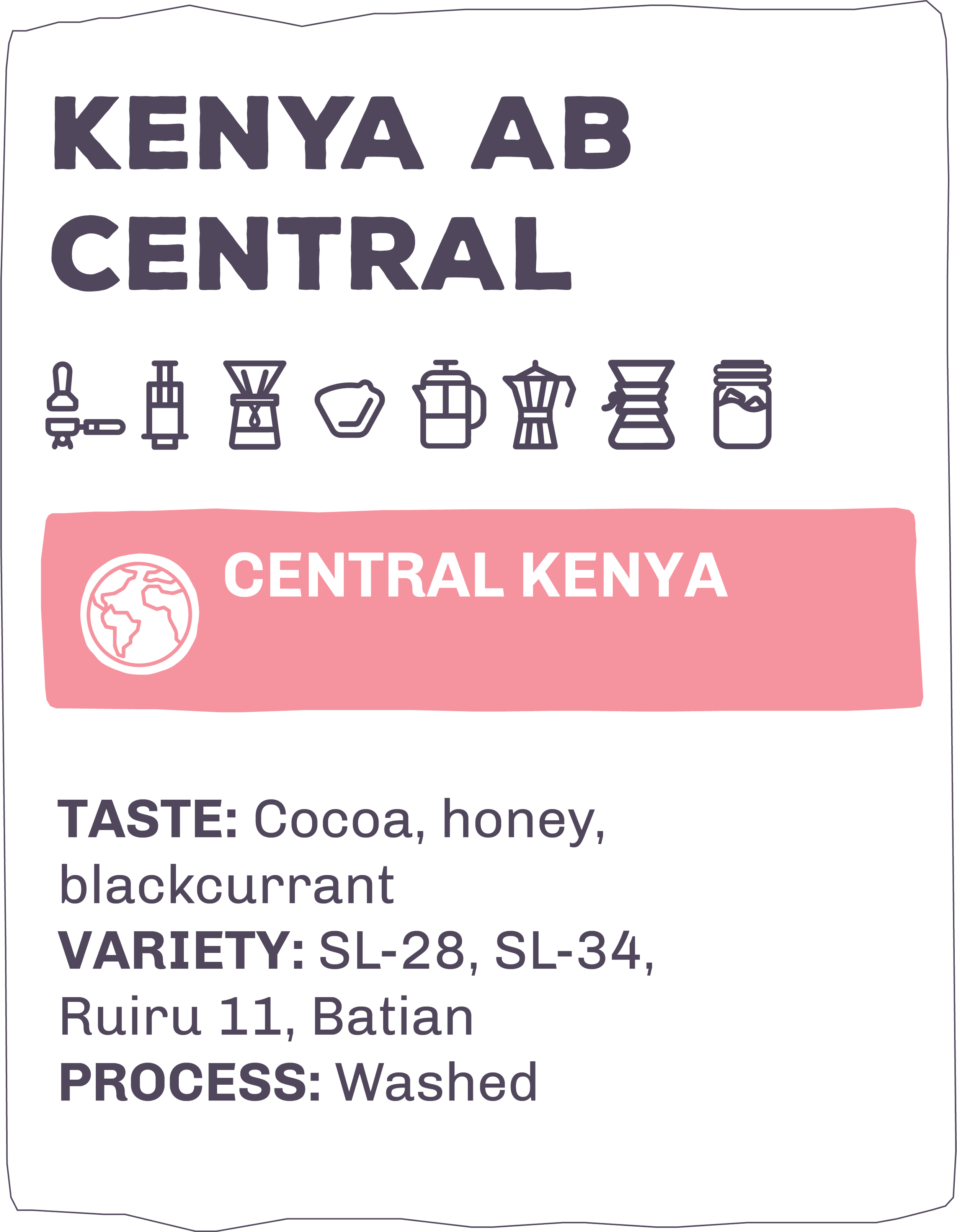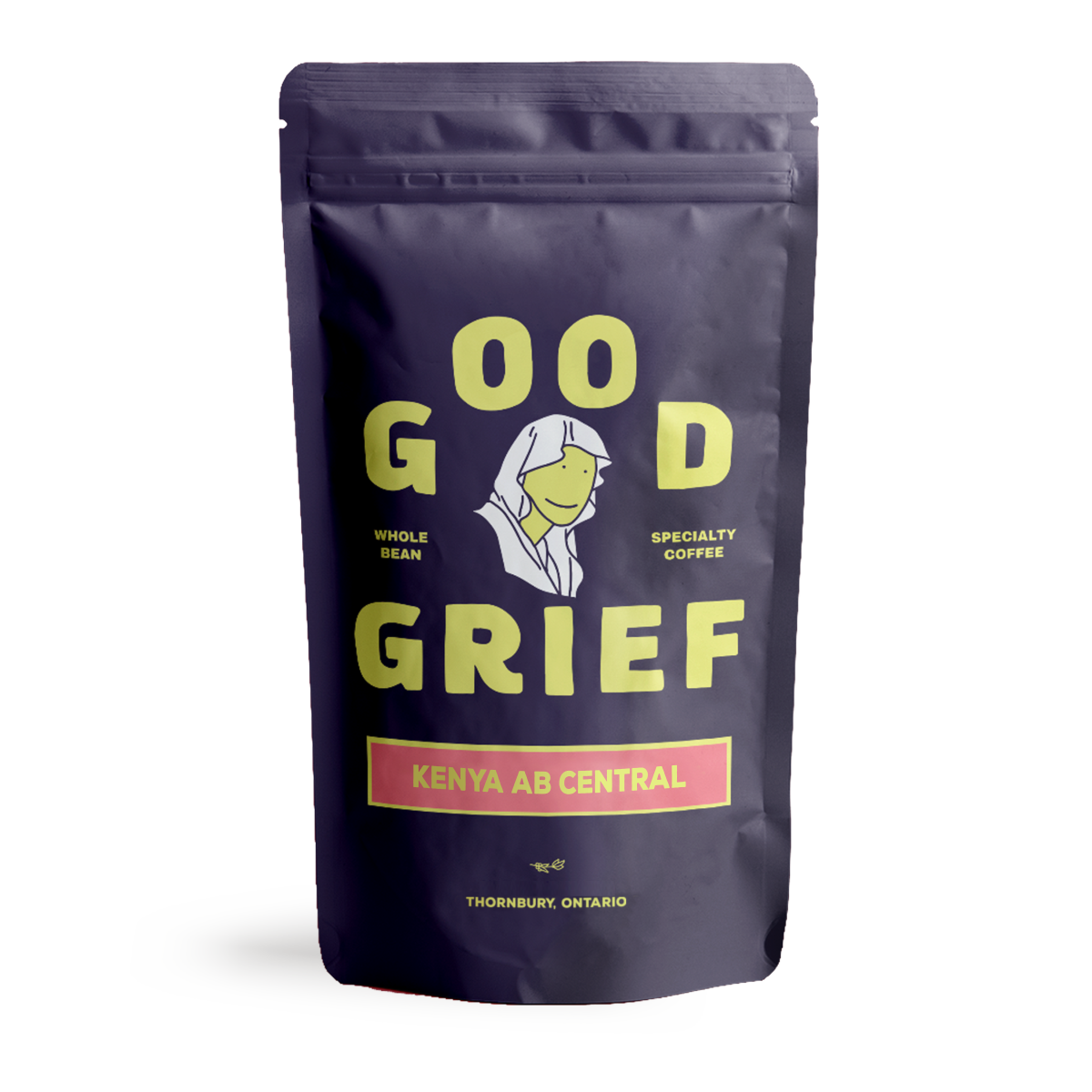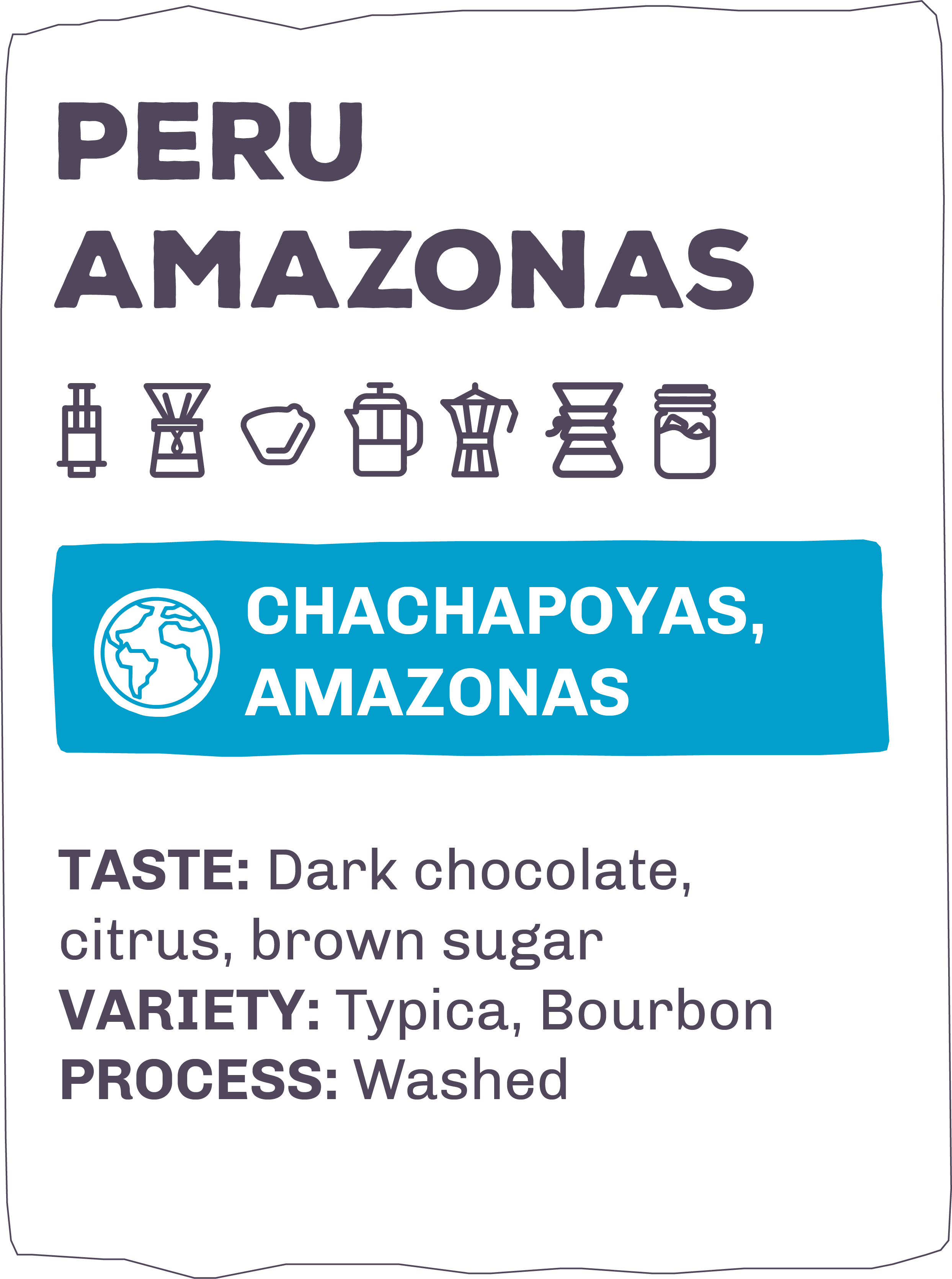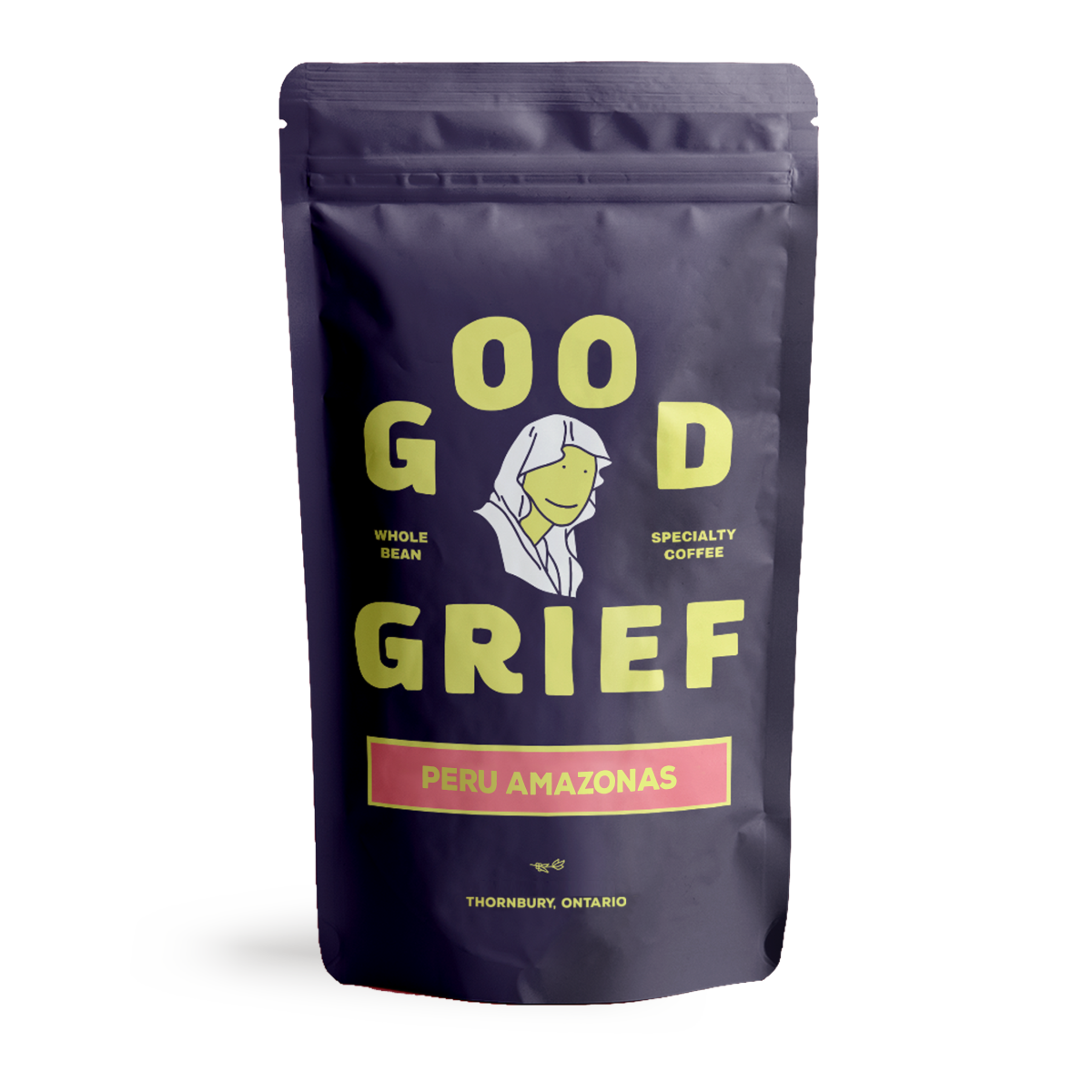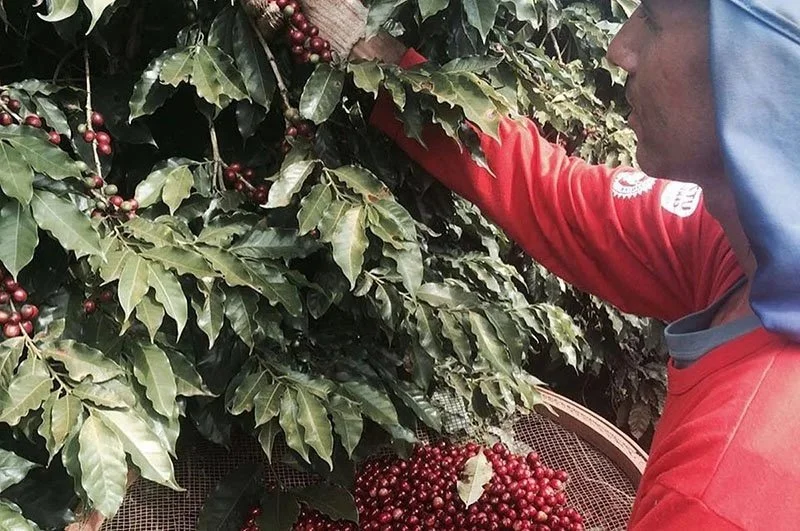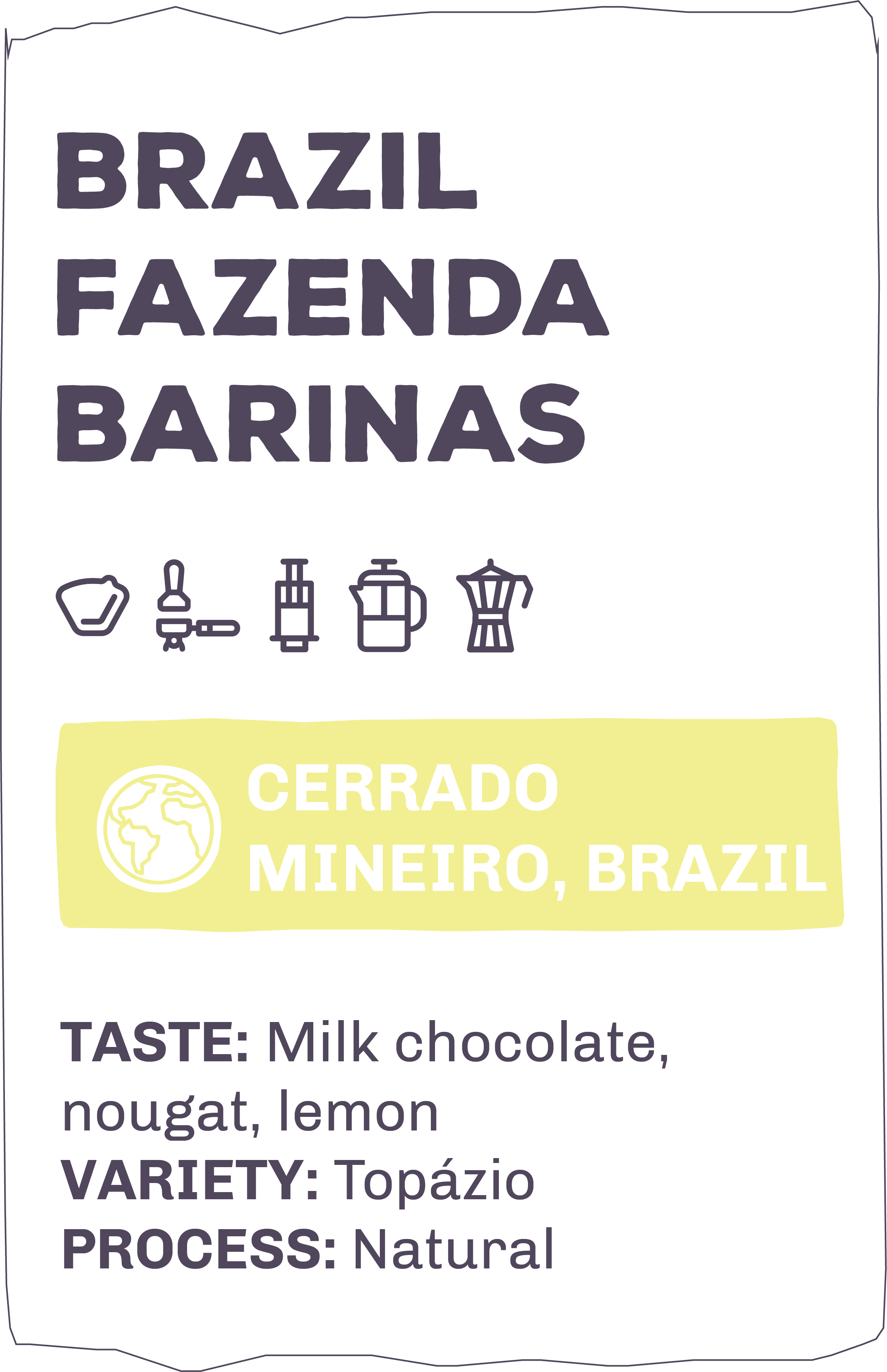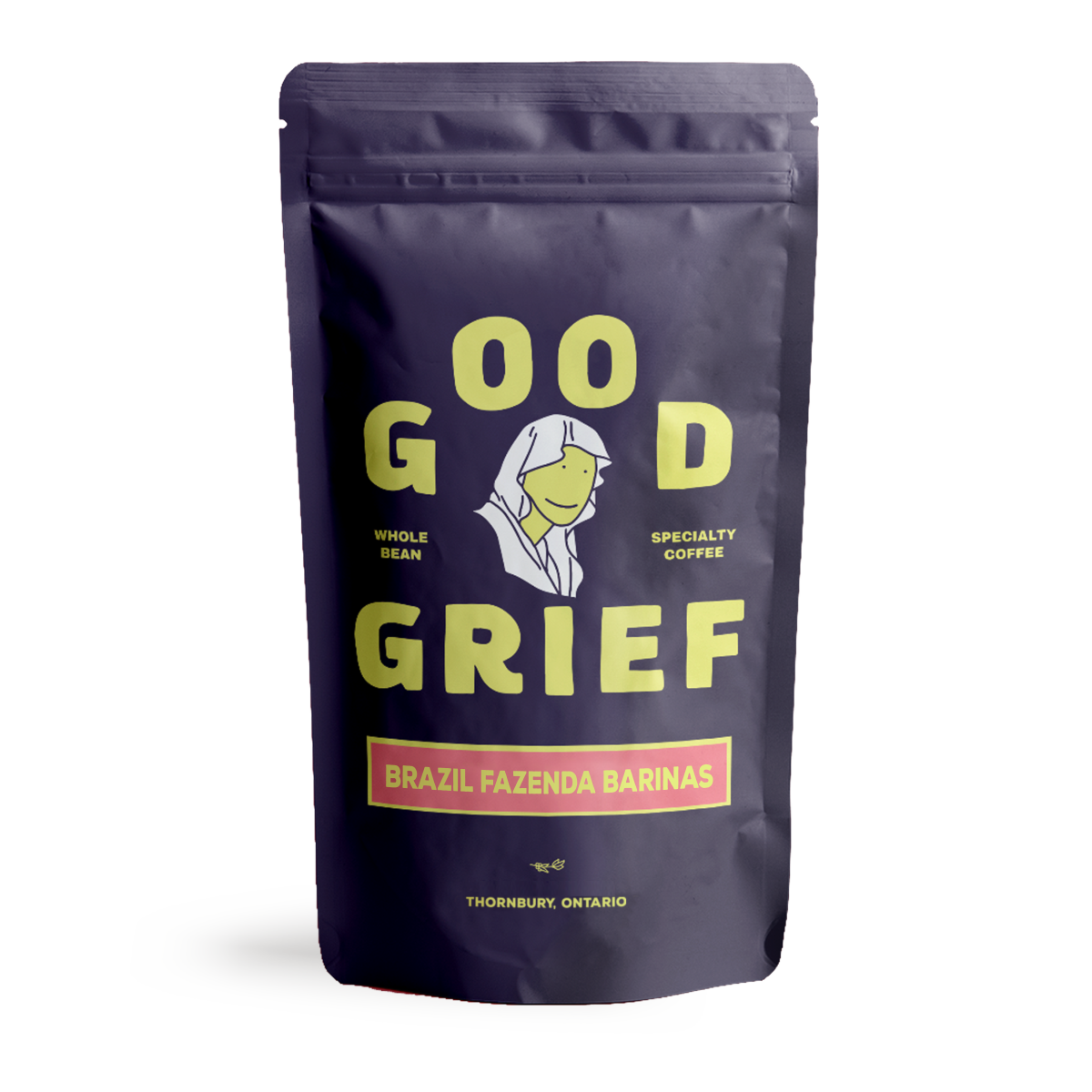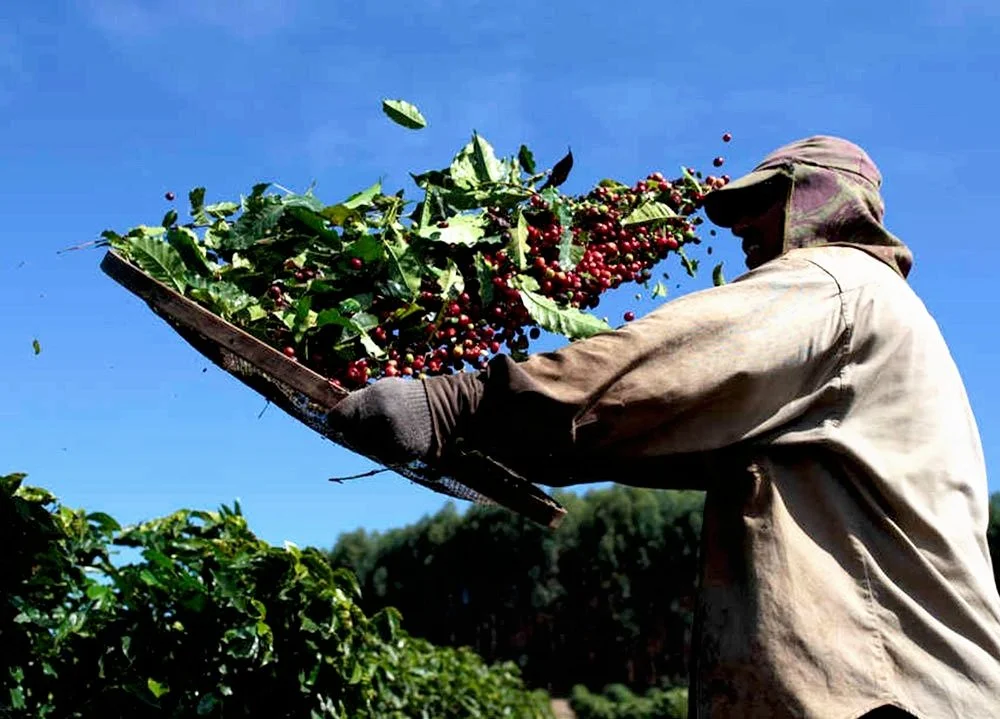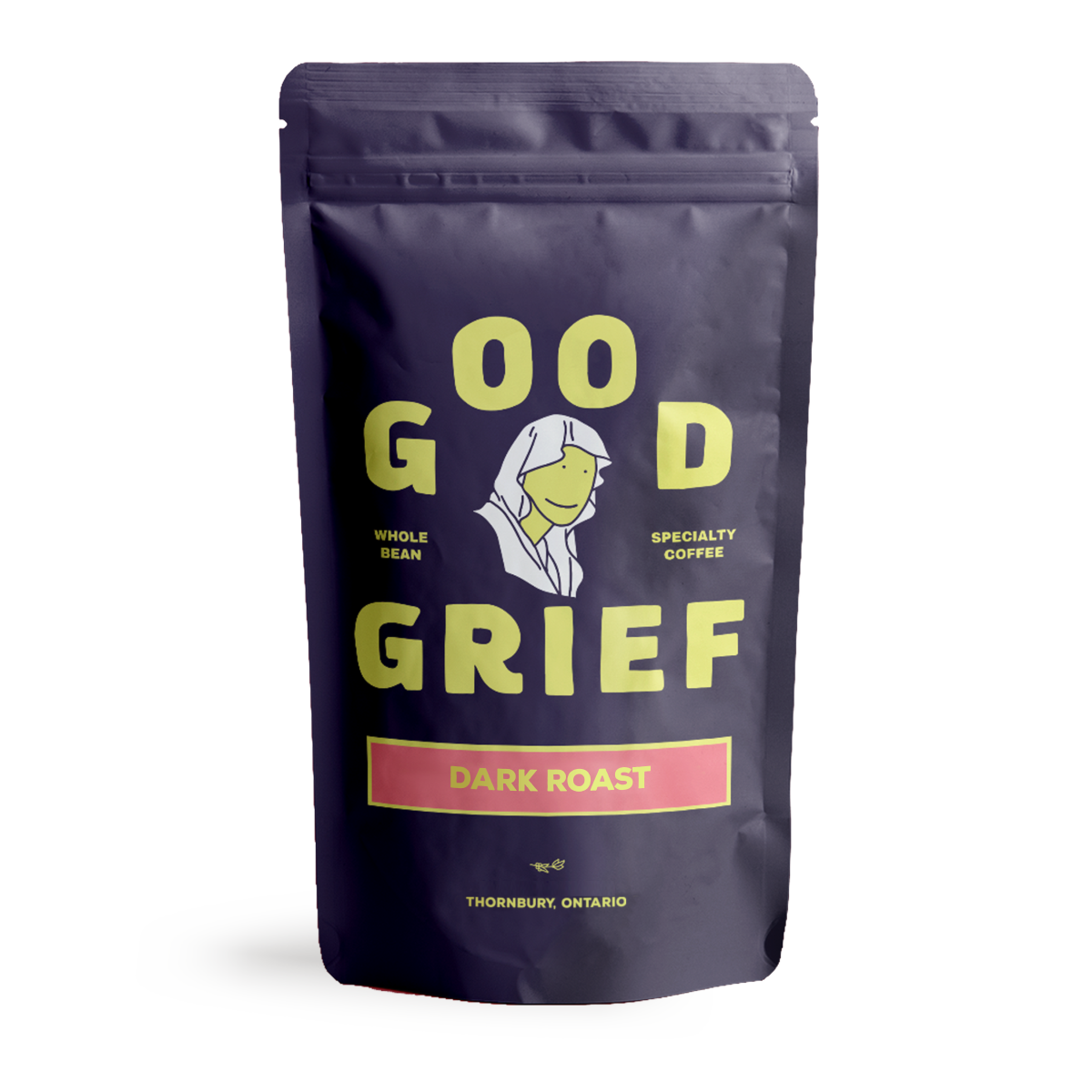our coffees
Kenya AB Central showcases the heritage and clarity Kenyan coffees are celebrated for. Grown across the Central Highlands of Kenya, this Grade AB lot is cultivated by smallholder farmers at various washing stations, drawing on generations of coffee tradition and meticulous post-harvest care. The high-elevation terrain around Mount Kenya—with its cool climate, rich red volcanic soils, and well-timed rainfall—creates ideal conditions for coffee cultivation. This combination encourages slower cherry development, producing denser, more complex beans that express distinct regional character.
Kenya AB Central is known for its bright, lively acidity and medium-full body—a hallmark of Kenyan washed coffees. Expect a harmonious interplay of cocoa and honey notes, with a lingering finish reminiscent of blackcurrant. These vibrant characteristics are balanced with sweetness and structure, making this coffee versatile across brew methods from espresso to drip and cold brew.
The “AB” grade refers to bean size in the Kenyan grading system—beans that fall between screens 15 and 18—indicating larger, well-developed seeds that contribute to even roasting and consistent flavor.
Kenya AB Central is a fine example of how altitude, washed processing, and cooperative farming come together to deliver a coffee that’s expressive, balanced, and distinctly Kenyan.
This coffee comes from Chachapoyas, in Peru’s Amazonas region, an area increasingly recognized for producing clean, well-structured coffees. Located in northern Peru along the eastern slopes of the Andes, the region is characterized by high elevations, cool temperatures, frequent cloud cover, and fertile soils. These conditions slow coffee cherry maturation, allowing sugars and acids to develop more fully and resulting in greater balance and complexity in the cup.
Produced by smallholder farmers across multiple farms, this Grade 1 lot is grown at elevations of 1,600–1,800 masl. The coffee is processed using the washed method, which removes the fruit before drying and highlights clarity, sweetness, and origin character.
A blend of Typica and Bourbon varietals, Peru Amazonas offers a familiar yet refined flavor profile. Expect notes of dark chocolate, citrus, and brown sugar, complemented by medium citrus acidity with hints of lemon and subtle herbal tones. The cup is rounded out by a smooth, balanced body, making it versatile and approachable across brewing methods.
Peru Amazonas is an excellent example of how altitude, processing, and traditional varietals combine to express the character of northern Peru’s coffee-growing regions.
Brazil Fazenda Barinas comes from Fazenda Barinas, a family-run estate in the Cerrado Mineiro region of Minas Gerais, an area known for its consistent climate, defined seasons, and exceptional specialty coffee production. Grown and produced by Marcio Borges and his family, this coffee reflects generations of experience and a careful, quality-driven approach to farming.
This lot features the Topázio varietal and is processed using a natural fermented method, allowing the coffee’s inherent sweetness and fruit character to develop fully. Controlled fermentation enhances complexity while maintaining balance and structure in the cup.
Expect a smooth, rounded profile with notes of milk chocolate and nougat, complemented by a gentle lemon brightness that lifts the sweetness without overpowering it. The cup finishes clean with a full, silky body and a lingering, dessert-like sweetness.
Brazil Fazenda Barinas is an approachable yet expressive coffee — equally at home as a comforting espresso or a balanced filter brew.
Serras de Minas is a perfect example of a traditional balanced Brazilian coffee. It carries the traditional profile of a Brazil coffee with nutty and chocolatey notes, but much more elevated and with added complexity that exceeds most Brazil coffees. In this coffee we find a rich cholate note, dried citrus and a pleasant nutty finish. This is a fully traceable Swiss Water Process decaf bean, produced in Brazil and imported by Catalogue Coffee in Toronto. It is made from a blend of coffees from producers Luiza Macedo, William Cesar Gomes, brothers Márcio Custódio and Izonel Junior and Fazenda CETEC.
From an early age, William Cesar Gomes learned the craft of cultivation from watching his parents and older brothers. There was a time when the family crops ended but when the growing life resumed in 2017, William joined in to plant his first crop. Drought and pests made that initial plunge a challenge, but over time, William has successfully added more crops and more experience to his resume as his production effort has grown in the pursuit of high-quality coffee.
From humble beginnings, brothers Márcio Custódio and Izonel Junior discovered their passion for coffee working as pickers before dedicating themselves to their studies. After becoming university professors, they pledged to open their own technical school: several years later, the CEDEC Technological Center became a reality. Located in the city of Lavras, in the south of Minas Gerais, CEDEC aimed to provide young people in need with the possibility to study and improve their quality of life. Ten years after forming CEDEC, and having trained more than 5,000 youths, Márcio and Izonel decided it was time to make good on their dream of returning to the land and purchased a small farm in the tiny town of Itumirim (which means “small waterfall,” in tribute to the dozens of scenic waterfalls the area is known for). In a tragic twist of fate, Izonel died not long after the farm’s purchase. Márcio thought of selling but instead opted to pursue the brothers’ childhood passion, naming the property Fazenda CETEC in honour of the school that provided them with the opportunity to begin again as producers of beautiful coffee.
Through the years, Fazenda CETEC has focused on providing a respectful and safe environment for workers (CEDEC does not employ children based on the premise a child’s place is in school). Committed to the well-being of the farm and the springs and forests it connects to, CETEC keeps water use in its processes to a minimum and integrates signalgrass (Brachiaria) to help prevent soil erosion and reduce the need for herbicide and chemical fertilizers to keep weeds and pests at bay. The grass is placed under coffee trees to create a natural organic buffer.
An agronomist, producer Luiza Macedo has dedicated herself to the pursuit of studying coffee production. She has a master’s degree in coffee nutrition and physiology and is now in the throes of obtaining a PhD. Luiza is a founding partner of the company ""Conhecimento Agro” – aimed at increasing producers’ autonomy by providing a bridge between research, theory and practice through the provision of online courses and consulting. Luiza is currently the deputy director of research at the Brazilian chapter of IWCA (Alianca Internacional das Mulheres, do Café).
This isn’t a regular Dark Roast, it’s a cool Dark Roast.
Our ode to dark roast is a little bit smoky, a lot a bit tasty, and has all the integrity and flavour you’ve come to expect from a Good Grief coffee. A blend of seasonal beans, the Dark Roast will satisfy drinkers without leaving the bitterness of a traditional French Roast behind. It’s perfectly balanced notes of molasses, baking spice, and caramel make it suitable for both filter coffee and espresso, and everything in between. Although roasted a bit darker than our standard coffee, the nuance of the beans still shines through giving the drinker a delicious mouthful of caffeinated goodness, sip after sip.



